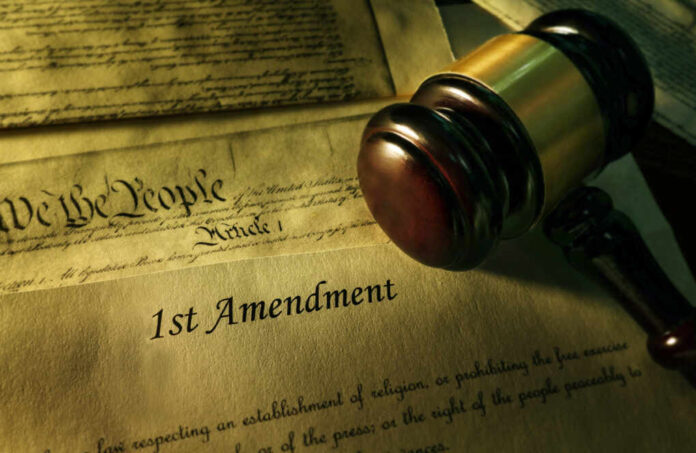
In the ongoing Supreme Court case of Murthy v. Missouri, the heart of America’s First Amendment rights is on trial, with the right to communicate openly — and thereby the essence of community and connection — hanging in the balance. Some deceptively frame the case as whether the government can “persuade not coerce” third parties, including Big Tech companies, to censor content deemed “incorrect or harmful.” However, this perspective narrowly construed what is at stake: the broader issue is whether the government can manipulate the digital public square to control individual conversations and, by extension, relationships.
The ramifications of a ruling in favor of the government in Murthy could profoundly undermine the free speech rights of hundreds of millions of Americans. Political censorship, under the guise of protecting national security or public health, threatens the abstract value of free speech and the tangible, deeply personal freedoms to build families, make friends, and cultivate social bonds without fear of state interference.
Murthy v. Missouri Is About Not Only Coercing Big Tech But Controlling Individuals https://t.co/gdVE8lwdLI via @FDRLST
— Chris 🇺🇸 (@Chris_1791) April 5, 2024
Censorship’s purpose and effect promote social isolation by fostering a climate of fear of being found preemptively guilty of “wrongthink.” Government censorship throughout history has always led to a more alienated and dysfunctional society.
Last month’s oral arguments in Murthy presented concerning moments, revealing a potential willingness among some justices to reconsider the scope of the First Amendment. The discussion ranged from questioning the amendment’s capacity to “hamstring” government action to considering hypothetical scenarios that could justify censorship. The arguments were largely focused on what the justices appeared to see as a tightrope between government persuasion and outright coercion — a line that, once crossed, could lead to an irreversible erosion of constitutional freedoms.
Critics argue that government “persuasion” in this context is a euphemism for coercion, with Big Tech companies under significant pressure to comply with government directives or face potential repercussions. Redefining strong-arm tactics as “persuasion” does nothing to rehabilitate the proper relationship between the government and the press. In that the First Amendment was designed to protect a robust and independent press that is naturally adversarial to the government, accepting a “persuasive” relationship would become a slippery slope leading to a press constantly looking over its shoulder for approval from political state agents.
The final ruling is expected by early summer.




























